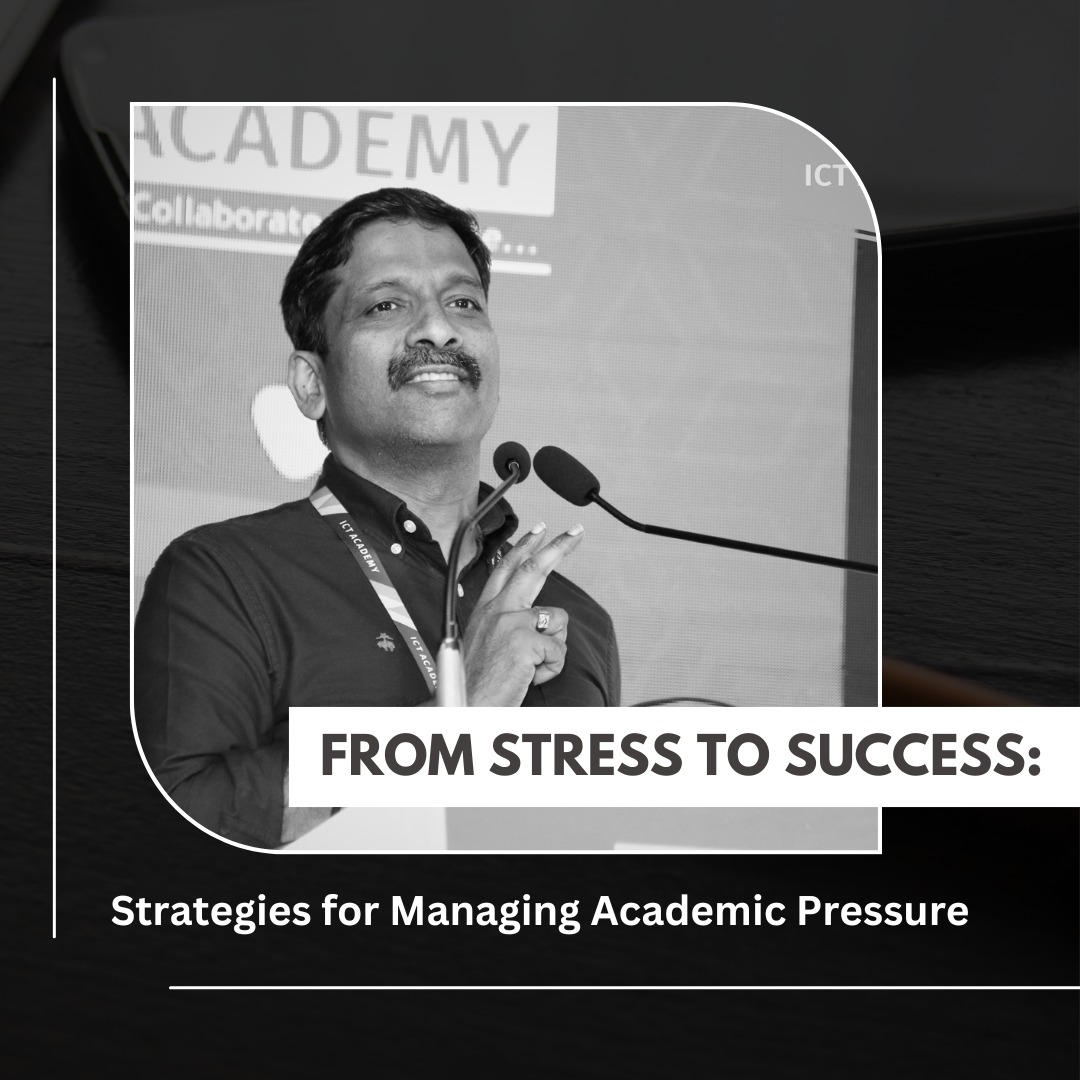ES Chakravarthy Academic life is a whirlwind of assignments, exams, and deadlines. For many students, this constant pressure can lead to stress and anxiety, impacting both their mental well-being and academic performance. However, with the right strategies, it’s possible to navigate these challenges and turn stress into success.
Time Management: One of the most critical aspects of managing academic pressure is effective time management. Create a schedule that includes dedicated time for studying, assignments, and relaxation. Prioritize tasks based on deadlines and importance, and break larger projects into smaller, manageable tasks. ES Chakravarthy emphasizes the importance of planning and organization in achieving success, and proper time management is at the core of this approach.
Set Realistic Goals: While ambition is admirable, setting unrealistic goals can contribute to stress and burnout. Set achievable academic goals that align with your capabilities and resources. Break down long-term goals into short-term milestones, celebrating each accomplishment along the way. This incremental progress not only boosts motivation but also reduces the overwhelming feeling of academic pressure.
Seek Support: Don’t hesitate to reach out for support when needed. Whether it’s discussing academic challenges with professors, seeking clarification from peers, or utilizing campus resources like tutoring centers or counseling services, seeking help is a sign of strength, not weakness. ES Chakravarthy emphasizes the value of collaboration and leveraging available support systems to overcome obstacles.
Practice Self-Care: Taking care of your physical and mental well-being is crucial for managing academic pressure. Get adequate sleep, eat nutritious meals, exercise regularly, and practice relaxation techniques such as deep breathing, meditation, or yoga. Remember, a healthy mind and body are better equipped to handle academic challenges.
Stay Organized: Keep track of assignments, exams, and important deadlines using planners, calendars, or digital apps. Organize study materials and create a conducive workspace that minimizes distractions. Being organized reduces stress and allows for more focused and productive study sessions.
Manage Expectations: Avoid comparing yourself to others or succumbing to external pressures. Focus on your personal growth and progress rather than seeking perfection or validation from others. ES Chakravarthy emphasizes the importance of self-awareness and self-compassion in achieving academic success.
Take Breaks: Incorporate regular breaks into your study routine to prevent burnout. Engage in activities you enjoy, whether it’s reading for pleasure, listening to music, spending time outdoors, or socializing with friends. Balancing study time with relaxation helps recharge your energy and improve overall productivity.
Develop Study Strategies: Experiment with different study techniques to find what works best for you. This may include active learning methods such as summarizing content, teaching concepts to others, or creating visual aids like mind maps or flashcards. ES Chakravarthy emphasizes the value of continuous learning and adapting study strategies based on individual strengths and preferences.
Conclusion: Managing academic pressure requires a combination of effective strategies and a positive mindset. By practicing time management, setting realistic goals, seeking support, prioritizing self-care, staying organized, managing expectations, taking breaks, and developing study strategies, students can transform stress into success. Remember, academic challenges are opportunities for growth and learning, and with the right approach, you can thrive in your academic journey.






